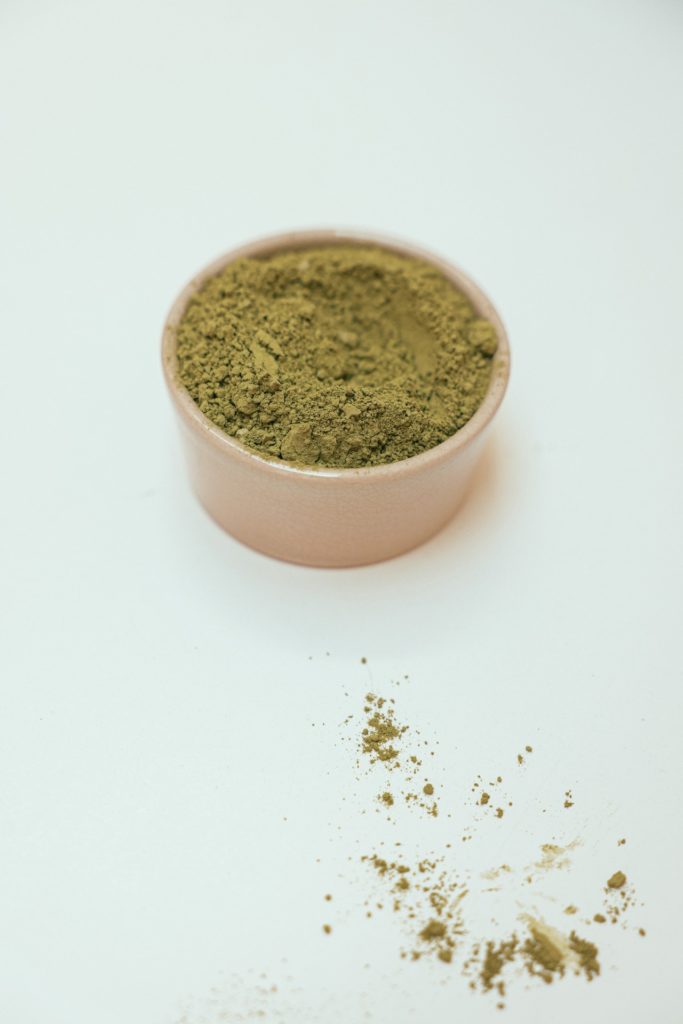Hemp for pets is often confused with – cannabis or marijuana. They originate from the same plant, but their properties and functions in human and animal systems are vastly different. All three have beneficial properties for you and your pet. Hemp can be included in a diet without medical supervision, where as cannabis and marijuana cannot. The cannabis sativa plant is a miracle plant which offers uses ranging from medicinal properties to raw material for products like rope and fabric! It has been in existence and use for thousands of years. From the ancient Egyptians to Indian Ayurvedic texts hemp has been used and consumed. What should you know about hemp for your pets?

What should you know about hemp for your pets?
Benefits of Hemp for your Pets
Aids Digestion
Heart Health
Improves Coat and Skin
Builds Immunity
Source of Anti oxidant
Reduces Inflammation
Source of Amino Acids
Easy to access plant protein
Affordable protein supplement for vegetarian dogs
Why Use Hemp protein?
Hemp is an excellent source of digestible plant based protein. Hemp and its byproducts from oil to hemp cakes are being used or considered to add to diets of animals raised for slaughter.2 Why does this matter when discussing the benefits of hemp for companion animals? The meat industry is a purely for profit industry therefore it seeks out methods to keep animals in confinement healthy at a lower cost. Health experts and officials globally are sounding alarm bells on the serious risks of anti microbial resistance. Since changing the dietary habits of a planet are a Herculanean task, the industry is looking for alternatives.
Confused about what is safe for your pets?
Hemp comes from the seeds of the Cannabis Sativa plant it is a plant based protein and highly nutritious. Plant based diets and proteins are ‘better’ than animal based proteins as they are sources of protein which are readily available to your body. Hemp protein powder contains all the essential amino acids. It is particularly high in cysteine, arginine and glutamic acid. In addition to these it contains healthy fats and minerals.
Cysteine is essential for healthy nails and hair or fur. It is an important source of producing collagen in the body. Arginine is an essential amino acid which helps reduce inflammation as well as build immunity for dogs. 4
Hemp is everywhere, from supplements to beauty products. Like most ‘super foods’ hemp has been in use and existence for hundreds of years. We don’t discover them …. we rediscover them. Ancient Greeks are reported to have used cannabis as part of their treatment for dressing wounds and stopping nosebleeds in horses.1 It is interesting to note that hemp and cannabis were used as recently as 1937 as a medication and remedy for horse ailments.
Will my pet get high?
No! Because hemp seeds or powder do not contain THC. The most important aspect of using a supplement for your pets is to know the source and safety. the cannabis sativa plant is a miracle plant which offers uses from medicinal properties to raw material for products such as rope and fabric! It has been in use and existence for thousands of years and has a mention and use in ancient and indigenous cultures across the globe.
Hemp and Cats
Cats are all at once powerfully delicate, domestic and wild! We may confine them as pets, and alter their hunting habits. We may label them as pets and ourselves parents, their ancestral dietary and nutritional needs do not change.
“Furthermore, cats have a higher requirement for essential amino acids and essential fatty acids. Hastened use coupled with an inability to conserve certain amino acids, including methionine, cysteine, taurine and arginine, necessitates a higher dietary intake for cats compared to most other species.”
Verbrugghe A, Bakovic M. Peculiarities of One-Carbon Metabolism in the Strict Carnivorous Cat and the Role in Feline Hepatic Lipidosis. Nutrients. 2013; 5(7):2811-2835. https://doi.org/10.3390/nu5072811
Hemp therefore is an excellent supplement for cats. It is crucial to remember that cats are obligate carnivores. Treats and supplements may be plant based there is no such thing as a “plant based cat”
Hemp contains Linoleic acid, which the body does not produce on its own. It provides an optimal ratio of the Essential Fatty Acids (EFAs) Linoleic Acid (Omega 6) and Alpha-Linolenic Acid (Omega 3) for body absorption.3
What is Cannabis Sativa?
Cannabis Sativa is one the most versatile plants. The uses range from medicinal to nutritional and is even a raw material to make products such as clothing or rope. Hemp, comes from the seeds of the Cannabis Sativa plant. It contains all 9 essential amino acids. What are amino acids? The building blocks of any and all life forms. It is one of the most digestible sources of protein. Hemp contains less than 1% THC (the psychoactive element of Cannabis Sativa) therefore it is completely safe to use for animals as well as humans.
A human and animal friendly supplement you can enjoy with your dog, cat or horse.
Cannabis, Marijuana & THC
Cannabis is the group of 3 plants Cannabis Sativa, Cannabis Indica and Cannabis Ruderalis. All three have psychoactive properties. However, each product derived from the family of cannabis plants does not have the same outcomes and uses. The range of products is diverse from medicinal oils to clothing.
Marijuana has medicinal as well as recreational uses. It should be noted that studies have linked excessive marijuana use in young adults to memory and developmental issues later in life. However, responsibly used, marijuana has the potential to help terminally ill patients with pain relief. The medicinal use of marijuana should always be through a clinic and in consultation with your medical practitioner.
Tetrahydrocannabinol (THC) is the psychotropic element of the cannabis sativa plant. It is a cannabinoid which binds to the endocannabinoid receptors in a persons or animals brain and body.
Do cannabinoids have medical uses? Medical Use of Cannabinoids (Fraguas-Sánchez AI, Torres-Suárez AI. Medical Use of Cannabinoids. Drugs. 2018 Nov;78(16):1665-1703. doi: 10.1007/s40265-018-0996-1. PMID: 30374797.)
The Endocannibinoid System
To understand how ingredients and elements of the cannabis family benefit and work within the human body we need to establish the workings of this system. The Endocannibinoid system like the parasympathetic or sympathetic nervous system is a part of the human or animal body. Cannabinoids bind to the cannabinoid receptors in the brain and organs. They are of two kinds CB1 and CB2. Each regulate a different function.
Cannabidiol commonly know as CBD comes from the stalks, flowers, leaves and NOT SEEDS. The human endocannabinoid system works to maintain homeostasis (balance/ equilibrium) in the body. It plays an important role in maintenance of health. CBD works to relieve pain or inflammation because human and animal cannabinoid systems are similar to the cannabinoids found in the Cannabis Sativa plant. It binds to these receptors in the animal or human being.
CBD for animals should not be used assuming human dosages. It may easily lead to poisoning. If you think your ill or senior pet may benefit from CBD, please use it under supervision. Social media is overflowing with advice from self appointed experts. Incorrectly dosed, CBD can be harmful for your pets.
Cannabinoid therapy in animals is an emerging field and clinical studies are underway in a number of universities. Cornell
Cannabis Medicines and Historical Animal Testing, Academy of Cannabis Sciences
University recently completed a double blind, placebo-controlled study showing cannabinoids to be “efficacious for pain in dogs
with osteoarthritis, chronic joint pain and geriatric pain and soreness; with dramatic beneficial effects in our more geriatric
patients.”
How to introduce a supplement
Slowly. Think of your pets digestive system like your own. Never mind what the new ‘super food’ of the month is or latest fad diet, abruptly changing your eating habits are never a recipe for success. Your physical body needs time to accept a new food. For pets/ animals who are fed a commercial diet and have little or no access to fresh food- it amounts to over loading the system. To draw a parallel, if you eat only bread and meat and no roughage a sudden overload of roughage to your system can make you ill. Moderation is the key, ease your pets into new foods and experiences. Start with the Hemp powder as a food topper and introduce it slowly into the food. Start with as little as a quarter teaspoon a day.
Can a Cannabis product be harmful to your pets?
For products which contain CBD or THC it is important to use them with the advice of your vet. Please never extrapolate human dosage for an animal. Your companion animals may be sensitive to smoked marijuana. Second hand or even third hand smoke from cannabis ( or even tobacco) is harmful to cats and dogs. Second hand smoke as we know is harmful to human beings, what we should also be concerned with is the effect on our pets and their health. Cats in particular and some dogs are known to develop lymphomas (cancer) in relation to exposure to second hand smoke.
In conclusion hemp is a human and animal friendly super food. Used properly and with supervision you and your pets will benefit. It is an affordable, versatile plant based protein which is beneficial for you and your animals.
1 What’s New is Really Quite Old, Even Ancient, Academy of Cannabis Sciences
2 Living The High Life: Hemp and Its Benefits for Dogs
3 https://askmycats.com/hemp-for-cats
4 Dor C, Adamany JL, Kisielewicz C, de Brot S, Erles K, Dhumeaux MP. Acquired urea cycle amino acid deficiency and hyperammonaemic encephalopathy in a cat with inflammatory bowel disease and chronic kidney disease. JFMS Open Rep. 2018;4(2):2055116918786750. Published 2018 Jul 30. doi:10.1177/2055116918786750
Della Rocca G, Di Salvo A. Hemp in Veterinary Medicine: From Feed to Drug. Front Vet Sci. 2020;7:387. Published 2020 Jul 28. doi:10.3389/fvets.2020.00387























